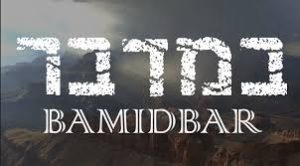 My daughter was working on a French assignment – reading a previously unseen text and answering questions. One of the questions provided the first sentence of a couplet and asked the student to write a rhyming second line.
My daughter was working on a French assignment – reading a previously unseen text and answering questions. One of the questions provided the first sentence of a couplet and asked the student to write a rhyming second line.
“When am I ever going to have to do something like this?” she complained.
“It’s good practice,” I answered. “You’ll have these exercises on government exams and all through high school.”
“But in real life,” she continued. “How is this useful?”
Trying to offer a concrete example, rather than explain the more abstract idea of training to think in another language and facility with vocabulary, I said: “Maybe you’ll be a lawyer and have to read contracts in French and answer questions for your client.”
Without missing a beat, she retorted: “My answers won’t have to rhyme!”
This week’s parashah is the first chapters of the fourth book of the Torah – Bamidbar (In the Wilderness) or Numbers. The Hebrew title is taken from the first verse, which states: “The Lord spoke to Moses in the Wilderness of Sinai.” The English name is derived from the Greek translation of the Torah and refers to the detailed census of the Israelite people that Moses is commanded to undertake.
“These are the offspring of Aaron and Moses on the day the Lord spoke with Moses at Mount Sinai. These are the names of the sons of Aaron.” The question that arises from this verse is – If only Aaron’s descendants are listed, why are they also called the offspring of Moses?
Rashi offers the following explanation: It mentions none but the sons of Aaron, yet they are called the offspring of Moses because Moses taught them Torah. It teaches us that whoever teaches his friend’s child Torah, Scripture views him as if he fathered the child.
Viewed from the other direction, one can understand from the verse that teaching Torah – the transmission of our culture, beliefs and practices – is the responsibility of a parent. Just as our children need to understand concretely how the French and Math and Reading they learn in school will be relevant and helpful to them outside of the classroom, so too do they need to observe and experience and participate in the Jewish teachings and traditions in order for them to appreciate our rich heritage, own these traditions for themselves and carry them forward to the next generation.
As parents, we facilitate for our children experiences with money in the neighbourhood store, we model conversing in French and encourage our children to practice while we are out in the city and we read with them as often as we can. In this week’s parashah, as we head into the holiday that celebrates receiving the Torah on Mount Sinai, we are reminded that lighting Shabbat candles, attending a Passover Seder, hearing the Ten Commandments read in synagogue, eating in a Sukkah and all the myriad of other Jewish experiences and traditions similarly reinforce the lessons of the classroom and most significantly confirm a strong and lasting connection. And as parents, this is our responsibility.
Shabbat Shalom and Chag Shavuot Sameach!












